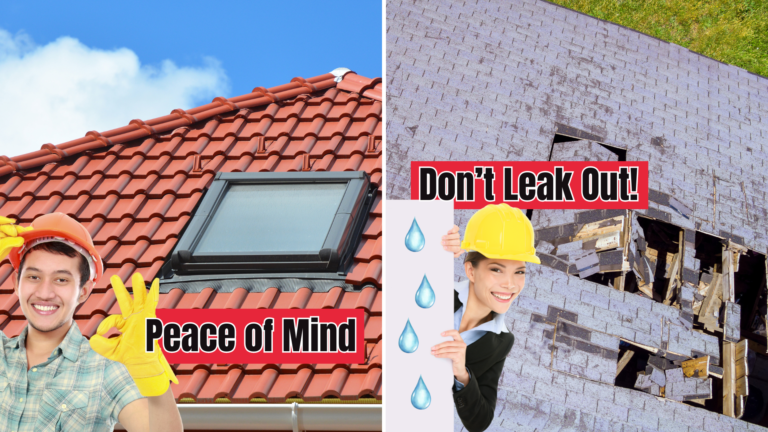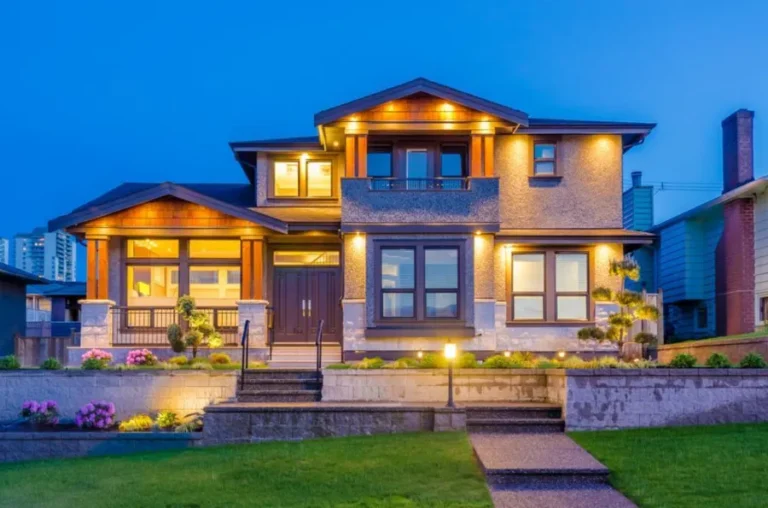Asphalt Shingles vs Tile vs Metal: Which Roof is Best?

Your roof plays a crucial role in protecting your home against the elements, making it necessary to choose the right roofing material that fits your needs. Understanding factors such as local climate, roof pitch, budget, aesthetics, and long-term investment versus short-term solution, will guide you towards selecting the most suitable roofing material for your home.
Asphalt Shingles
Types and Characteristics
For a reliable and cost-effective roofing solution, asphalt shingles are a popular choice among homeowners. Shingles are available in two main styles. Architectural shingles offer a dimensional, textured look similar to wood shake or slate and tend to last 20-30 years. On the other hand, 3-tab shingles have a flat appearance and generally last 15-20 years. Recognizing the differences between these styles can help you make an informed decision for your home.
| Shingles | Architectural Shingles |
|---|---|
| 3-Tab Shingles |
Advantages and Disadvantages
Advantages of asphalt shingles include affordability, versatility, and ease of installation. They come in a wide range of colors, are lightweight, and suitable for most roof structures. However, recognizing some disadvantages is crucial. While asphalt shingles are more budget-friendly, they have a shorter lifespan compared to other roofing materials like tile and metal. Understanding the pros and cons of asphalt shingles can help you determine if they are the right choice for your home.
Tile Roofing
Materials and Styles
While tile roofs are known for their elegance and durability, there are different materials and styles to consider. With concrete tiles being more affordable and lighter than clay tiles, they offer a practical choice for many homeowners. Clay tiles, on the other hand, provide a traditional look and are extremely durable, lasting a century or more. The variety of colors and finishes available in both concrete and clay tiles allow for customization to suit different architectural styles.
Benefits and Limitations
For homeowners considering tile roofing, it’s necessary to understand the benefits and limitations that come with this material. To start, tile roofs offer exceptional durability, resistance to fire, rot, and insects, and can withstand high winds and hail. However, one limitation to keep in mind is the weight of tile roofs, which require a strong roof structure for support. Additionally, installation costs for tile roofs are typically higher due to the specialized skills and labor required.
Metal Roofing
Varieties and Features
For those considering metal roofing, there are various options to choose from, each offering unique features and benefits. Common varieties of metal roofing include standing seam and corrugated metal roofs, each with its advantages. Standing seam metal roofs are known for their sleek appearance and exceptional water-shedding capabilities, while corrugated metal roofs offer a more affordable option and can be installed over existing materials in some cases.
Pros and Cons
On the one hand, metal roofing is known for its durability, energy efficiency, and low maintenance requirements. However, it is crucial to weigh the pros and cons before making a decision. Here is a breakdown of the key advantages and disadvantages of metal roofing:
| Pros | Cons |
| Longevity | Higher initial cost |
| Low maintenance | Potential noise factor |
| Energy efficient | |
| Resistant to fire and insects |
Understanding the advantages and disadvantages of metal roofing can help you make an informed decision that aligns with your needs and priorities. While metal roofs offer superior longevity and energy efficiency, they may come with a significantly higher initial cost and potential noise concerns. Considering these factors can help you determine if a metal roof is the right choice for your home.
Comparison and Considerations
| Factors | Asphalt Shingles |
| Durability | Moderate to High |
| Cost (Initial) | Low |
| Maintenance | Moderate |
| Energy Efficiency | Low to Moderate |
| Fire Resistance | Moderate |
| Noise Reduction | Moderate |
| Aesthetics | Varied |
Performance and Cost Analysis
Any decision regarding the roofing material for your home should consider a combination of factors including durability, cost, maintenance requirements, energy efficiency, fire resistance, noise reduction, and aesthetics. Asphalt shingles offer low to moderate durability and initial cost, moderate maintenance needs, and low to moderate energy efficiency. They provide a varied aesthetic appeal that can complement different home styles.
Climate Suitability and Aesthetic Impact
Suitability for your local climate and the impact on your home’s aesthetic are crucial considerations when choosing between asphalt shingles, tile, or metal roofs. It is important to understand how each material performs in your specific climate conditions. Additionally, consider the aesthetic impact each roofing material will have on the overall look of your home. Tile roofs, for example, offer a classic, timeless appearance that can enhance the architectural style of Mediterranean or Spanish homes.
Installation and Maintenance
Importance of Professional Installation
All successful roofing projects start with a solid foundation, and that foundation is proper installation. The quality of your roof’s installation can impact its longevity and performance. Hiring a professional roofing contractor ensures that your new roof is installed correctly and up to industry standards. With experience and expertise, professionals can handle any challenges that may arise during the installation process, giving you peace of mind and a roof that will stand the test of time.
Maintenance Requirements by Material
To maintain the integrity and longevity of your roof, regular maintenance is important. The specific maintenance requirements can vary depending on the material of your roof:
- Asphalt Shingles: Periodic inspections are needed to check for loose, damaged, or missing shingles. Repairs or replacements may be required more frequently due to the shorter lifespan of asphalt shingles.
- Tile Roof: While relatively low maintenance, tile roofs may occasionally require loose or broken tiles to be replaced to ensure optimal performance and appearance.
- Metal Roof: Metal roofs require minimal maintenance but should still be inspected annually to ensure they remain in good condition and free of debris.
Regardless of the material you choose, proper maintenance will help extend the life of your roof and protect your investment in the long run.
Stop Roof Worry and Find Your Perfect Match: Durability, Cost & Style
Presently, when considering the best roofing material for your home, it’s imperative to weigh the factors that are most important to you, such as durability, cost, maintenance, energy efficiency, and aesthetics. Asphalt shingles offer affordability and versatility, while tile roofs provide exceptional longevity and a classic appearance. Metal roofs boast strong durability and energy efficiency. Each material has its pros and cons, so determining which is best for your home will depend on your unique needs and priorities.
United Building Contractors (UBC) is here to help you navigate this decision-making process and ensure that your new roof is installed correctly and built to last. Contact us today for a free estimate and let us protect your home with a high-quality, durable roof that will stand the test of time.
FAQ
Q: What are the main factors to consider when choosing between asphalt shingles, tile, and metal roofing?
A: When deciding on the best roofing material for your home, it’s imperative to consider factors such as your local climate, roof pitch, budget, desired aesthetics, and whether you are looking for a long-term investment or a short-term solution.
Q: What are the key differences in durability, cost, maintenance, energy efficiency, and aesthetics between asphalt shingles, tile, and metal roofs?
A: Asphalt shingles offer low to moderate durability, low initial cost, moderate maintenance, low to moderate energy efficiency, and varied aesthetics. Tile roofs provide high durability, high cost, low maintenance, moderate energy efficiency, and classic aesthetics. Metal roofs boast high durability, moderate to high cost, low maintenance, high energy efficiency, and modern/rustic aesthetics.
Q: What are some imperative installation and maintenance tips for each type of roofing material?
A: Proper installation by a professional roofing contractor is crucial for all materials. For asphalt shingles, periodic inspections for loose or damaged shingles are needed. Tile roofs may require occasional tile replacements. Metal roofs generally require minimal maintenance but should be inspected annually for any issues.







